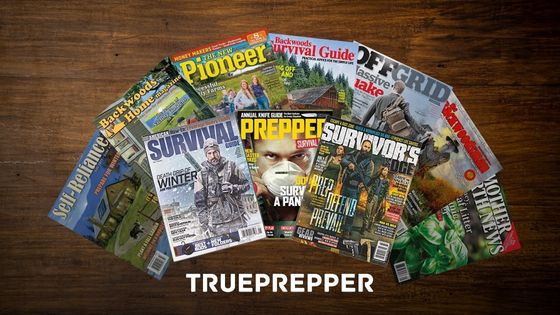
Survival schools are designed to teach people the skills they need in an emergency situation. The training will cover survival basics, such as fire making and shelter building. It will teach you how and when to heat up, how to find water, and how to search for food. Survival knowledge is the best defense against any natural disaster.
These schools typically take place in nature, where students are exposed to breathtaking landscapes and will have to work to develop the skills needed. The course will require them to not only overcome physical challenges but also mental ones. They will need to be able to use a map and a compass to help them find their way.
A course at a survival school will typically last a few weeks or even months. While some classes are held in the winter, others are offered year round. The courses offered by each school can be either intensive or simple depending on their requirements. Some schools are very inexpensive, while some are expensive. Many schools offer weekend courses, residential immersion, or day workshops.

Mountain Shepherd Wilderness Survival School (MSWSS) is one of our most affordable survival schools. Their courses are based on primitive skills and are meant for nature lovers. Students will learn to build shelters, as well as to identify plant medicine. The students will have the chance to get certification at the completion of the course. They are available at many locations across the U.S., including California and Arizona as well as Utah.
The Maine Primitive Skills School provides wilderness education and long-term apprenticeships. The school's custom-designed wilderness retreats are a highlight. They also promote self-reliance and a close connection to nature. Day workshops and weeklong wilderness courses are also available. No matter what level you are at, the school is able to meet your needs.
Wilderness Awareness School in the Pacific Northwest teaches people how connect with nature. The school has been in business since 1983. Online classes can be accessed if you are unable to attend a course in person.
Adam Nestor is a professional survival instructor and leads the Sands Point Preserve Survival Class for adults. Participants will learn how trapping and fire making are done. During the course, students will also learn how to improvise a shelter, as well as how to use a compass. Participants in this course are eligible for college credit.

The Survival Training School of California is a great option for anyone who wants to learn skills for survival in the wilderness. It's located close to the Mojave Desert. This seven-day course helps you pack as much as possible into a week. It also includes a visit to Grand Staircase Escalante National Monument.
FAQ
What are the essential skills required to survive in the wild?
If you live off the soil, you must learn how to build a fire. This is more than just lighting a flame. It requires you to learn friction and fluent methods of starting a fire. You must also know how to not get burned by the flames.
You will need to be able to construct shelter from natural materials like leaves, grasses and trees. You'll need to know how best to use these materials to stay warm at night. And finally, you'll need to know how much water you need to survive.
Other Survival Skills
Other things will help you stay alive, but they aren't as vital as knowing how to light a fire. Although you can eat many different types of plants and animals, if your fire is not lit, you will be unable to cook them.
You'll also need to know how best and where to find food, including edible plants and animals. This knowledge is crucial to avoid becoming sick or starving.
What is the most important tool for survival?
A sharp knife is essential for survival. You don't just need any knife, it has to have a sharp blade. You won't get much out of it if you don’t know how to properly use it.
A knife with no blade is useless. A knife with a dull blade is dangerous.
Master craftsmen are skilled in making the best knives. They take great pride at their work and ensure that each knife they make is flawless.
They clean their blades and sharpen the knives regularly.
You want it to feel right in your hands when you purchase a knife. It should feel good in your hand.
The handle should not have any sharp edges.
If you do find such flaws, ask the seller to fix them. Accept a knife you don't like in your hands.
What is the best survival tip?
You can survive by staying calm. If you panic you will make mistakes and ultimately die.
What are your options in a survival situation
There is no time to think about the next thing to say. It is important to be ready for any eventuality. Prepare for any unexpected situation by knowing how to respond.
If you aren't sure what to do, you must be able to adapt.
In a survival situation you might face the following problems:
-
Finding yourself trapped in remote areas
-
Getting lost
-
Having limited food supplies
-
Low on water
-
Facing hostile people
-
Wild animals:
-
Finding shelter
-
Predators can be defeated
-
Setting fire to
-
Use tools
-
Building shelters
-
Hunting
-
* Fishing
How to Navigate Without a Compass or With One
Although it doesn't give you a map of where you are heading, a compass can help you navigate back home if your bearings have been lost.
You can navigate using three different methods:
-
By landmarks
-
Magnetic North (using a compasse)
-
By stars
Landmarks can be objects you recognize as soon as you see them. They include trees, buildings, rivers, etc. Landmarks can be useful because they are a visual indicator of where you're at.
Magnetic North simply indicates the direction in which Earth's magnetic field points. The sun appears to be moving across sky if you look up. The earth's magnetic field actually causes sun to move around. The sun appears to move across the sky but it actually moves around the horizon. At noon, the sun is directly overhead. The sun is directly below your eyes at midnight. The magnetic field on the earth changes daily, so the direction of the North pole's magnetic North pole can change every day. This could mean you can be off-course by quite a bit in one day.
Stars are another method for navigating. The stars appear to rise or set above the horizon. These points are in space and can be used to locate your position relative to other places.
What's the time taken to find help once you are lost?
This is dependent on many factors.
-
Where you are
-
Which terrain are yours?
-
Whether you have cell phone reception
-
Whether someone has seen you
-
No matter if you're hurt
-
Dehydration can be caused by several factors.
-
It doesn't matter if water has been ingested.
-
It doesn't matter if you have had food recently
-
It doesn't matter if you are wearing the right clothing
-
No matter whether you are carrying a compass, a map, or a compass
-
How familiar can you be with the area
-
How many years have passed since you lost your keys?
-
How much time did you spend searching for help
-
What is the average time it takes for people to notice what you are missing?
-
You are amazed at how fast they find you and start searching for you
-
How many rescuers have you attracted?
-
How many rescues received you?
What is the most essential item for survival?
Food is the most vital thing for survival. Shelter is just as important as food. You will not live very long if there isn't enough food.
Statistics
- We know you're not always going to be 100% prepared for the situations that befall you, but you can still try and do your best to mitigate the worst circumstances by preparing for a number of contingencies. (hiconsumption.com)
- In November of 1755, an earthquake with an estimated magnitude of 6.0 and a maximum intensity of VIII occurred about 50 miles northeast of Boston, Massachusetts. (usgs.gov)
- Not only does it kill up to 99.9% of all waterborne bacteria and parasites, but it will filter up to 1,000 liters of water without the use of chemicals. (hiconsumption.com)
- Without one, your head and neck can radiate up to 40 percent of your body heat. (dec.ny.gov)
External Links
How To
How to Dress a Wound?
To learn how to properly treat a wound, it takes a lot of effort. Basic knowledge is required, including anatomy, physiology and medical instruments. You could inflict injury on your own if you don't have enough experience when dressing a wound. However, if you want to dress a wound, you should follow these steps:
-
Clean the wound thoroughly. Make sure the wound does not contain dirt and foreign objects. After cleaning the wound, put gauze around it. Be sure to clean your hands after you have cleaned the wound.
-
Use pressure. Two fingers should be placed under the skin around the wound's edge. Apply pressure gently but firmly. This step helps stop bleeding.
-
Make sure to properly cover the wound. Cover the wound with sterile bandage material. Nonwoven fabric, surgical tape and adhesive strips are all options for sterile bandages. Continue applying pressure until your wound heals completely.
-
Monitor the wound after treatment. Watch for signs of infection, including redness, swelling, pus, fever, and pain. These signs can indicate that the injury has become infected. Get to your doctor right away.
-
You should change the bandage frequently. The bandage should be changed every day or whenever there are any signs of infection.
-
Use warm water and soap to clean the area. Follow the instructions on the package. Do not use alcohol because it may dry up the wound.
-
Do not scratch the wound. The wound can bleed again by being scratched.
-
You should be cautious when taking a dip in the pool. The risk of contracting an infection by bathing is higher.
-
Take care of the wound all the time. As you heal from surgery, your body temperature will rise. A high body temperature can lead to complications. Keep the wound clean and dry.
-
If you need help, get it. Call 911 if you feel unwell.